Nature-based tourism takes off in Western Iberia thanks to financial support from Rewilding Europe Capital.
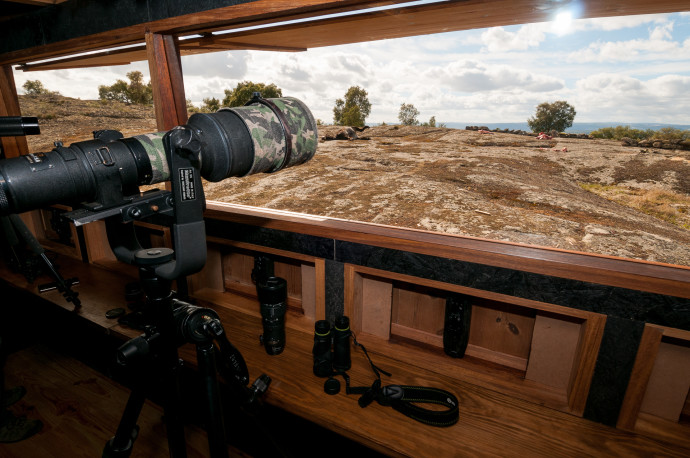
Close encounters
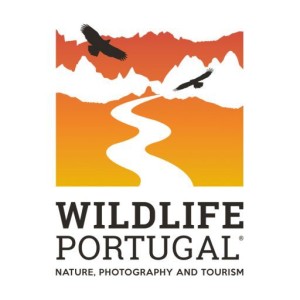 In 2016 wildlife tour operator Wildlife Portugal became the fourth recipient of a Rewilding Europe Capital (REC) loan in the Western Iberia rewilding area. The company specialises in birdwatching tours within the region, with a focus on the Faia Brava nature reserve. The REC loan of 33,000 euros was used to develop two new birdwatching and photography hides (of which one is now finished), as well as purchase a 4×4 vehicle and the latest optical equipment.
In 2016 wildlife tour operator Wildlife Portugal became the fourth recipient of a Rewilding Europe Capital (REC) loan in the Western Iberia rewilding area. The company specialises in birdwatching tours within the region, with a focus on the Faia Brava nature reserve. The REC loan of 33,000 euros was used to develop two new birdwatching and photography hides (of which one is now finished), as well as purchase a 4×4 vehicle and the latest optical equipment.
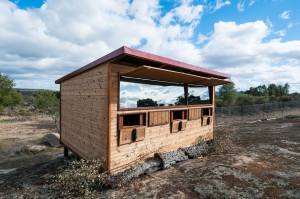
Built in cooperation with local NGO Associação Transumância e Natureza, Wildlife Portugal’s newly constructed hide is located on a rocky outcrop, high above the meandering Côa River. Positioned next to the new artificial vulture feeding station of Comiera-Algodres, it gives birdwatchers and photographers fantastic close-up views of Egyptian, black and griffon vultures, as well as other species such as red kites, crow species and Azure-winged magpies.
The construction of the hide took around two months. The first part of the design and building process took place in a local carpentry workshop, with pieces subsequently assembled on location. Fernando Romão, owner of Wildlife Portugal and also a keen birdwatcher and photographer himself, made good use of the Rewilding Europe publication “Wildlife watching hides: a practical guide 2.0” when conceiving the initial design. A young local architect Samuel Pinto completed the blueprint.
Timely opening
With the popularity of bird and wildlife watching now on the rise in Portugal, Romão’s hide is well-placed to meet this growing demand.
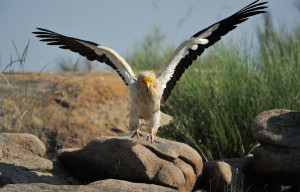
“The construction of wildlife hides for photography at Faia Brava adds a new and high quality experience for people visiting this rewilding area,” he says. “It will have a significant promotional and economic impact.”
“We’re delighted that the vulture feeding station and new wildlife hide will soon be ready to receive Egyptian vultures returning from Africa to their nests in the Côa Valley,” adds Pedro Prata, team leader of the Western Iberia rewilding area.
The construction of the second hide will start this year, with the team aiming to attract passerines through a “mirror of water”, a pond that will be built to also serve as a feeding place for black stork. The hide and the pond will be located inside a breeding wild-rabbit enclosure, which it is hoped may eventually attract birds of prey, like the majestic Golden and Bonelli’s eagles.
Collaborative capital
Wildlife Portugal is part of a “cluster” of complimentary enterprises in Western Iberia supported by REC. These also include Star Camp, Casa da Cisterna and Miles Away.
“Through mutual collaboration, these businesses are pioneering rewilding and nature-based tourism, and all are equally committed to local nature and wildlife,” explains Matthew McLuckie, REC’s investment manager. “By collecting a rewilding levy from guests and investing it in rewilding activities and land purchases to extend the Faia Brava reserve, they epitomise a successful nature-based business model.”
A high profile tool for promoting rewilding, Wildlife Portugal’s hides will hopefully lead to similar types of conservation-focused tourism in other parts of Europe. They are currently being integrated in various tourism programmes, including those offered by the European Safari Company , local hotels and local operators, and have also been presented at various tourism fairs.
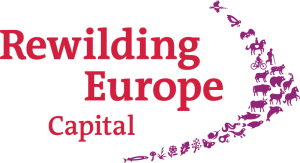 Rewilding Europe Capital (REC) is part of the enterprise component of Rewilding Europe, which is working to build a business case for wild nature in Europe. REC was established to encourage and support the development of businesses connected to new and sustainable nature-based economies across Europe. For more information on Rewilding Europe Capital, please click here.
Rewilding Europe Capital (REC) is part of the enterprise component of Rewilding Europe, which is working to build a business case for wild nature in Europe. REC was established to encourage and support the development of businesses connected to new and sustainable nature-based economies across Europe. For more information on Rewilding Europe Capital, please click here.
